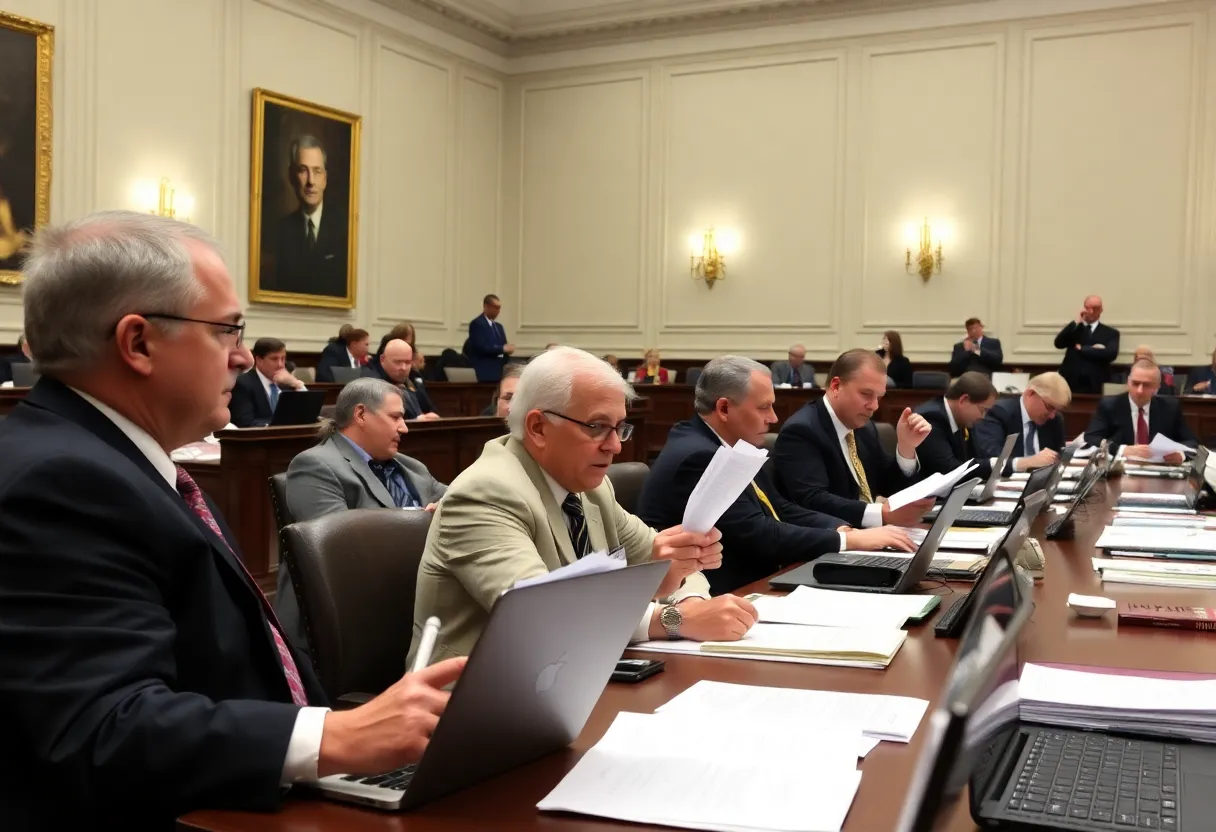News Summary
The Michigan Senate is grappling with new earned sick leave regulations that are set to take effect on February 21, 2025. Business advocates are raising concerns about the potential impact on local businesses, especially those with fewer employees. Legislative proposals from both the House and Senate aim to adjust sick leave requirements, but no votes have been cast yet. With the deadline looming, the future of these regulations remains uncertain, as stakeholders discuss potential exemptions and the economic implications for small businesses.
Michigan Senate Faces Decisions on Paid Sick Leave Amid Business Concerns
In the heart of Michigan, the Senate Regulatory Affairs Committee held an important meeting on February 11, 2025, focusing on new earned sick time requirements that are set to take effect just a few days later on February 21. As the clock ticks down, the atmosphere is thick with uncertainty about the future of these regulations, as business advocates express their worries about the impact these changes could have on local businesses.
What’s on the Table?
The committee heard various testimonies regarding a proposal aimed at easing the incoming requirements, primarily driven by concerns from business owners. Despite the looming deadline, the committee surprisingly chose not to cast a vote on the proposed legislation, leaving many people guessing what comes next.
Back in 2018, the Michigan Supreme Court had ruled that the previous actions taken by the Republican-led Legislature to remove certain provisions were unconstitutional. Now, if legislative changes don’t happen before February 21, businesses with fewer than 10 employees will be required to provide 40 hours of paid sick leave and an additional 32 hours of unpaid leave annually. On the flip side, companies with 10 or more employees must offer a whopping 72 hours of paid sick leave each year.
New Proposals Emerge
Things are heating up as two competing legislative proposals come into play, each proposing different adjustments to the sick leave rules. The House proposal seeks to exempt businesses with fewer than 50 employees from the new requirements and removes employees’ rights to take legal action for sick leave violations. Meanwhile, the Senate proposal defines small businesses as those with fewer than 25 employees but still requires them to provide 40 hours of paid sick leave and 30 hours of unpaid leave at the start of the year.
Senator Jeremy Moss, the Regulatory Affairs Committee Chair, hinted at ongoing discussions with colleagues in the House to work out a consensus, showing a willingness to collaborate. Meanwhile, business advocacy groups have voiced their concerns, shedding light on the potential repercussions for small businesses and their workforce, including seasonal and part-time employees.
Voices of Concern
The worries expressed by business representatives are not unfounded. With many small business owners wearing multiple hats, the additional compliance requirements can induce a great deal of stress. Some advocates propose a small business exemption akin to the House proposal, arguing that it would ease the burden off these hard-working owners.
Another point of concern is that the new regulations may allow employees to take up to three days off without any prior notice—a situation that could pose significant challenges for businesses relying on consistent staff availability. Emergency services have also raised the alarm, with pleas for exemptions to account for their unique staffing needs.
Advocates for workers are also keeping a close eye on these developments, particularly criticizing the Senate’s proposal for stripping away workers’ ability to take legal action for sick leave violations. Interestingly, while the proposed Senate bill does maintain some protections for workers, the lack of a private right of action doesn’t sit well with many.
The Bigger Picture
As the clock winds down to the deadline, business representatives worry that the implementation of these sick leave laws could lead to significant job losses and even restaurant closures. Conversations continue among lawmakers regarding this legislation, while House Speaker has called for swift action to prevent further financial strain on small business owners.
In an interesting twist, Governor Gretchen Whitmer has urged legislative leaders to postpone launching the new sick leave law along with changes to the minimum wage until July 1, should an agreement not be reached. The outcry from various stakeholders suggests that many are genuinely concerned about the economic impact these new rules could have on Michigan’s small businesses and the jobs they provide.
The future of Michigan’s paid sick leave requirements hangs in the balance, and as the deadline approaches, everyone is on high alert. Whether lawmakers can find a common ground to satisfy both business owners and workers remains to be seen. With so much at stake, it’s clear that this issue deserves the attention of everyone in the heart of Michigan and beyond.
Deeper Dive: News & Info About This Topic
- Michigan Advance
- Google Search: earned sick leave Michigan
- Detroit News
- Wikipedia: Sick leave
- National Law Review
- Encyclopedia Britannica: Employment Law
- Detroit Free Press
- Google News: paid sick leave in Michigan







